Every October since 1985, the world honors Breast Cancer Awareness Month. This is \”an annual campaign to increase awareness of the disease\” according to the National Breast Cancer Foundation. It has decades-long support from the likes of the American Cancer Society and the National Football League.
Today, the purported goals of Breast Cancer Awareness Month are to:
- Educate the public about this condition
- Encourage women to seek out early screening and mammograms
- Share the stories of people affected by breast cancer
- Improve access to screening, early detection, treatment, and palliative care for women affected by breast cancer
- Raise funds for continued research into the diagnosis, treatment, and prevention of the disease
We see a lot of pink ribbons and paraphernalia this time of year—but are the numbers improving? Let\’s look at the research to see whether Breast Cancer Awareness Month meets its goals.
Do Awareness Campaigns Work?
At face value, the concept of awareness campaigns makes well enough sense. Create impactful (or inspiring, or shocking, or memorable) messages, share these messages with the public, and get people talking. But \”creating buzz\” is not necessarily the same as inspiring behavior change, according to critics.
For example, do awareness campaigns about the importance of breast cancer screenings actually inspire women to schedule mammograms?
One 2018 study published in the Journal of Community Health found that a pilot campaign targeting low-income African American communities in the District of Columbia significantly increased the number of website visits and calls to a local mammography center. One could argue that these findings (visiting a website, making a phone call) do represent behavioral change—and potentially important ones, too.
But while the campaign was successful in increasing \”awareness\” and (at least temporarily) generating new interest in the clinic, the researchers acknowledge they were unable to fully estimate the effectiveness of the campaign \”in terms of increasing mammography screening.\” Why? Because they lacked sufficient funding to run their campaign for a long enough period of time. The researchers also cited prior studies investigating different awareness campaigns (HIV/AIDS, physical activity, eating habits, alcohol consumption, and the correct use of car seats) that revealed \”variable success.\”
We might conclude more research is needed to clarify how effective awareness campaigns actually are and what a successful one looks like. A 2004 briefing backed by the United Kingdom\’s NHS offers a few suggestions, stating that effective awareness campaigns include:
- The use of basic and accurate information through \”clear, unambiguous messages\”
- The use of behavioral skills training, including self-efficacy
- The use of community provisions and resources, such as transportation to and from healthcare facilities and clinics, in order to make services more accessible
- Collaboration with community members who can advocate for such services
Even so, the NHS says there \”has not normally been a high expectation that [mass media campaigns] on their own would change people’s behaviour [sic.]\”
Which raises the question:
Do we know whether Breast Cancer Awareness Month helps?
How Breast Cancer Diagnosis, Treatment, and Survival Has Changed Over the Decades
There\’s not enough data to say how much Breast Cancer Awareness Month has impacted breast cancer screening, diagnosis, treatment, survival, and prevention. But there have been some important trends over the past 35 years, and it\’s possible awareness campaigns have played a role.
Fundraising and Research
Billions of dollars are raised for breast cancer every year. In the United States, at least 30 federal agencies conduct and/or fund their own research. This is in addition to the hundreds of other organizations raising money, as well.
Money for research is important because it drives innovation and advances in treatment and diagnosis. But potential donors should be informed about the charities or organizations they choose to support. For instance, do donations support already well-funded research done at major institutions? Do any of the donations go directly to women in need?
Incidence
The incidence of breast cancer increased in the 1980s and 1990s, largely due to an increase in mammograms and screening—something the newly-initiated awareness campaign could have helped with.
Breast cancer incidence decreased in the early 2000s. The American Cancer Society suspects this was because of reduced use of hormone replacement therapy after studies came out showing a link between these drugs and breast cancer.
More recently, incident rates been mostly steady or slightly rising, by about 0.3 percent per year. Rates vary depending on demographic information, including age, race, ethnicity, and socioeconomic status. Currently, 1 in 8 American womenwill be diagnosed with breast cancer.
Treatments
According to the National Cancer Institute, advances in breast cancer treatment are ongoing. Current innovations include genetic analyses to detect breast cancer subtypes and the combined use of hormone therapy plus targeted therapies (drugs that block breast cancer growth).
Survival and Prognosis
According to BreastCancer.org, the overall death rate from breast cancer decreased by 1.3% per year from 2013 to 2017. The American Cancer Society also reports a general decline in breast cancer deaths since 1985, attributed largely to advances in treatment and earlier detection.
So, is it worth celebrating Breast Cancer Awareness Month? It can be, especially if the campaign promotes behavior change. Talk to your loved ones about breast cancer, learn about organizations and charities you want to donate to, and talk to your doctor about breast cancer screening. Use this time to take action and protect your health, your future, and your community.
***
https://www.emcdda.europa.eu/attachements.cfm/att_94034_EN_Effectiveness%20of%20Mass%20Media%20campaigns%20HDA.pdf

